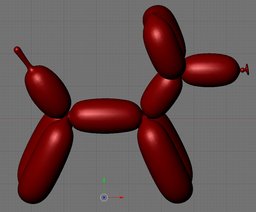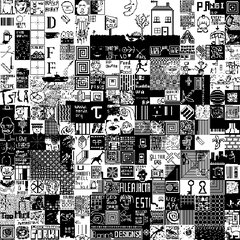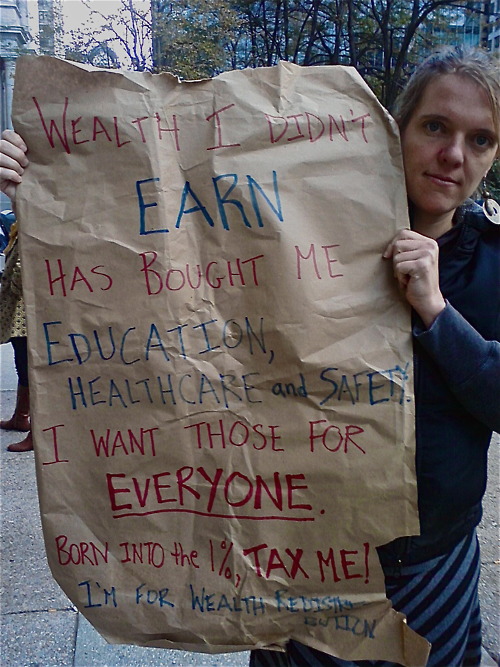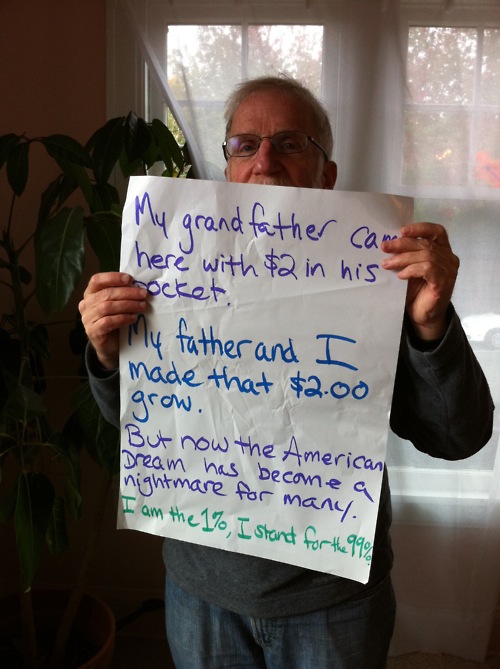|
Republished from the DFW Alliance, by Kevin Carson:
“Hierarchies are systematically stupid and inefficient, for the following reasons.
1. Hayekian information problems: The people in authority who make the rules interfere with the people who know how to do the job and are in direct contact with the situation. The people who make the rules know nothing about the work they’re interfering with. The people who make the rules are unaccountable to the people who do know how to do the work. Consequently, all authority-based rules create suboptimal results and irrationality when they interfere with the judgment of those in direct contact with the situation.
People in authority make stupid decisions because the people who know more than they do are their subordinates, and the only people who can hold them accountable know even less than they do.
The only way the people doing the work can get anything done is to treat irrational authority as an obstacle to be routed around, the same way the Internet treats censorship as damage and routes around it.
2. Groupthink: Hierarchies systematically suppress negative feedback on the results of their policies. As R.A. Wilson said, nobody tells the truth to a man with a gun. Hierarchies are very good at telling naked emperors how good their clothes look.
Hierarchies also systematically suppress critical thinking ability in their members. Psychological studies have found that people in positions of authority become less likely to evaluate communications based on their internal logic, and instead evaluate them based on the authority of the source.
3. Opacity from above: A major theme of “Seeing Like a State,” by James Scott, is that states try to make populations “legible” from above, and hence more amenable to control. We might add a “seeing like a boss” corrollary about the analogous phenomenon inside hierarchies. The problem is that such legibility is very costly, if not impossible, to achieve.
Hospitals are a good example. Most of the paperwork that nurses are required to fill out results from the fact that management doesn’t trust them to do what it wants them to do without some independent means of verification. But the paperwork is worthless, unless management operates on the assumption that those same nurses can be trusted to fill out the paperwork honestly. It all boils down to the fact that management knows their interests are diametrically opposed to those of the nurses, but there’s no way to actually get inside the nurses’ heads and look out through their eyes and thereby overcome this fundamental agency problem. So bosses constantly look for new, ineffectual gimmicks to get around the problem, resulting in endless layers of new paperwork that are as useless as the old paperwork.
Conclusion: To the extent that hierarchical organizations leave subordinates with freedom of exit, they are not coercive in the same way that the state is. But given that hierarchies are artificially prevalent because of state policies, and those who work within them do so as a necessary evil resulting from artificial constraints on the range of competing opportunities, the hierarchy resembles a microcosm of statist society, in which the agency and knowledge problems of authority internally mirror the irrationalities created by state authority in society at large.
So long as the predominant production methods required large aggregations of capital beyond the means of individuals and small groups, and corporate hierarchies were propped up by state ones, the cultural pathologies of hierarchy were surmountable. But technological change is rapidly eroding the requirement for capital outlays, nullifying the advantages of capital ownership, and increasing the vulnerability of hierarchy to external and internal attacks by self-organized networks.
So hierarchies, increasingly, lack the resources to compensate for their handicaps — even with help from the state. The state will only bankrupt itself, along with corporate hierarchies, in trying to prop up the old order.”

As reported on physorg.com Liberia, a country that only recently emerged from a brutal civil war, is having presidential elections. A Georgia Tech professor is experimenting with a novel idea: Crowdsourcing reports on how elections are running and making available timely reports to prevent any dangerous situations from occurring.
During the election, Georgia Tech Associate Professor Michael Best provided technical support for a Nigerian group that wanted to use social media as a means for tracking the election process and identifying any problems that cropped up. Best and his team of researchers designed a social media aggregator tool that could pull content from about 20 different sources (including Twitter) and analyze the data in real time using keywords.
At the peak of activity, the aggregator tracked about 50 reports per second and analyzed them based on keywords and (sometimes) location data. The Nigerian Social Media Tracking Centre, formed just before the election by the organization Best was supporting, forwarded along confirmable reports of election irregularities and ultimately reports of violence to Nigerian authorities.
Tangibly, Best and team want to produce open-source software that can be used to monitor major events as a complementary tool to traditional monitoring techniques. For example, the National Democratic Institute and the European Union both sent observers to Nigeria for its April elections, and today Liberia will likewise see international teams on the ground, monitoring and reporting on the country’s electoral processes. How can crowdsourced election data compliment the work of trained formal observer missions? What impact will that data have? And what impact will Friday’s announcement that President Ellen Johnson Sirleaf will receive the Nobel Peace Prize have on the election?
“The nongovernmental organizations [NGOs] that do election monitoring are understandably leery of formally using this technology right now, because they don’t want to risk their data being tainted with unreliable citizen reports,” said Thomas Smyth, a Ph.D. student in Best’s lab. “However our research could open up new understandings of how social media function in election-like situations, and as the explosion of social media causes NGOs to refine their policies, it could be of interest to them.”
Source: Crowdsourcing democracy through social media

  
We are very happy to announce the addition to the P2P Foundation wiki of a fantastic new resource on The World of Free and Open Source Art.
The collection commissioned by the Arts Council of England for Thinking Digital 2011 was produced by Furtherfield, curated by Ruth Catlow and Marc Garrett with additional texts by Charlotte Frost and Rob Myers.
The resource is live on both the Arts Council of England’s website and on the P2P Foundation Wiki so it can be shared between the over-lapping audience and communities.
“This is a collection of artworks, texts and resources about freedom and openness in the arts, in the age of the Internet. Freedom to collaborate – to use, modify and redistribute ideas, artworks, experiences, media and tools. Openness to the ideas and contributions of others, and new ways of organising and making decisions together. This non exhaustive collection is intended to inspire, inform and enable people to apply peer-to-peer principles for making things and getting organised together. We hope that all art lovers, makers, thinkers, organisers and strategists will find something for them from this set of imaginative, communitarian and dynamic contemporary practices.” – The World of Free and Open Source Art
 
We are the 1 percent – We stand with the 99 percent is an interesting collection of testimonies on tumblr. Lots of people who were born into wealth or were just lucky (or smart) and who have more than enough. They feel they are part of the 1% and yet … they stand with the majority. Many say “tax me” or “redistribute”. their express desire is to live in a world where they aren’t the only ones who have healthcare or education without a mountain of debt or enough money to eat properly every day.
Sometimes we hear that it would be impossible to tax the rich – they would no longer work and the economy would fail. These people tell a different story. There is much desire for a more equitable distribution of those riches.
Understandably, the server is having some trouble, perhaps because if you start reading, you get drawn along to see more and more. Here are a few examples…
My family has two houses. Seven cars. A small business. We are three people. My college is paid for, no loans. I have more money than I know what to do with. Tax me more. Help me give back.
I am the 1%. I stand with the 99%.

I inherited money at 25. My grandparents paid for my private education through college. They gave me a trust fund. My family and I are so lucky. But I want to live in a country where it doesn’t take luck to make it.

As a child I was given stock in a company that later went public.
With this money I have paid for private high school, private college and more than one masters degree at a private university.
Still, with what is left over I make more off capital gains than many people make working.
I recently learned that I pay lower taxes than a public school teacher. This is wrong.
Higher taxes would NOT have deterred my family from growing their businesses and employing people.
Tax me more.
Redistribute wealth.
I am the 1%
I stand with the 99%

More at http://westandwiththe99percent.tumblr.com/
(there are 10 pages – look for a yellow “WANDER BACK” sign… the way to go)

“The Fragile Beauty of P2P Movements in South Korea”

Post by Dmytri Kleiner
In explaining the Initiative to form an International Debtors’ Party I have discussed the issues of why “Debtors” and why a “Party”, now I would like to introduce some ideas as to how the Debtors’ Party will be different from other parties, by proposing the idea of a “Transnational Counter-party.”
A Transnational Counterparty is a transformative political organisation, that works towards the goals of a world with no classes and therefore no state.
It is Transnational, because, within itself, it recognizes no borders, and it is a Counter-party, because it’s goal is not to transform society from top down by seizing the power of the State, but to fight for the social conditions required by existing and emerging community-initiated, bottom-up, forms of transformation. To engage in the political theatre and struggle against the plutocratic interests from the old society that would crush any new social developments that would challenge there privilege.
To be a transformative structure requires divergent outwardly and inwardly characteristics.
Being part of a transformation, such a structure is a creature of the current society, it’s outwardly appearance and interfaces must be structured according the laws and practices of the existing society in order for it to function. Within itself it is an incubator for a new society and thereby the relations contained within itself must reflect those it want to achieve. It must be the revolution it seeks. It’s external characteristics must be the characteristics it seeks in the society it strives to achieve.
Venture Communism is such a transformative model, externally a joint-stock corporation, internally fostering commons-based production, Copyleft and Copy-far-left are also such transformative models, externally claiming property rights, while internally creating an information commons.
Antithetical extrinsic and intrinsic characteristics are essential features of any transformative structure. Above all, the extrinsic structure must ensure that the regressive relations of the outside must not penetrate and corrupt those of the inside, the extrinsic characteristics must create a bastion that allows its intrinsic properties to develop and thrive.
A Transnational Counterparty is such a transformative model, externally a network of regionally-bound Political Parties that contest elections for representation within hierarchical, authoritarian Governments, but internally operating as a radically participatory, non-hierarchical collective that operates without borders.
The network of Political Parties it founds and co-ordinates must be legally recognized as eligible to participate in government, and thus, these local Parties are objects of specific Government jurisdiction. A Transnational Counterparty, however, must operate such local entities as extrinsic interfaces to local governments which are closely bound to it’s own, fluid and participatory international internal democracy, and likewise it’s elected candidates must not become holders of individual power, must must excercise power on behalf of the democratically established census of the global membership, contractually bound to do so, and to forfeit their position if they fail to do so. The ultimate power in the Transnational Counterparty must be held by the membership itself, and never either it’s internal executive officials, nor it’s candidates and representatives in local governments. All agents of the Transnational Counterparty must be held accountable to the global membership.
The Transnational Counterparty can not ever be a ruling party, though it may have electoral success in places, the plutocratic parties will always hold more power. This is not a rule or principle of that the party needs to observe, this is a simple biproduct of the fact that it represents the new society, the emerging autonomous, collective communities striving to create a new ways of living. The plutocratic parties represent the powerful economic forces of the current society, and thus will always have more power so-long as the current society is not yet transformed.
Once the social power of the communities represented by the Transnational Counterparty overcome the power of the plutocrats, this means that such a newtork of autonomous, independent and inter-dependant communities will be larger in it’s social and economic base than that of the old society. Society will have already been transforme. classes will no longer exist, and without them nations will vanish. There will no longer be any ruling class or ruling party, the State will have withered away and the Transnational Counterparty will have dissolved into the fabric of the new society.
By the time a Transnational Counterparty has the power to seize the State, their will no longer be any State to sieze.
A nation is a body of people kept together for the purposes of rivalry and war with other similar bodies, and when competition shall have given place to combination, the function of the nation will be gone.” — William Morris
http://dmytri.info/we-need-to-work-with-the-consciousness-we-fin
http://dmytri.info/the-existence-of-demands-proves-the-existence

More Recent Articles |